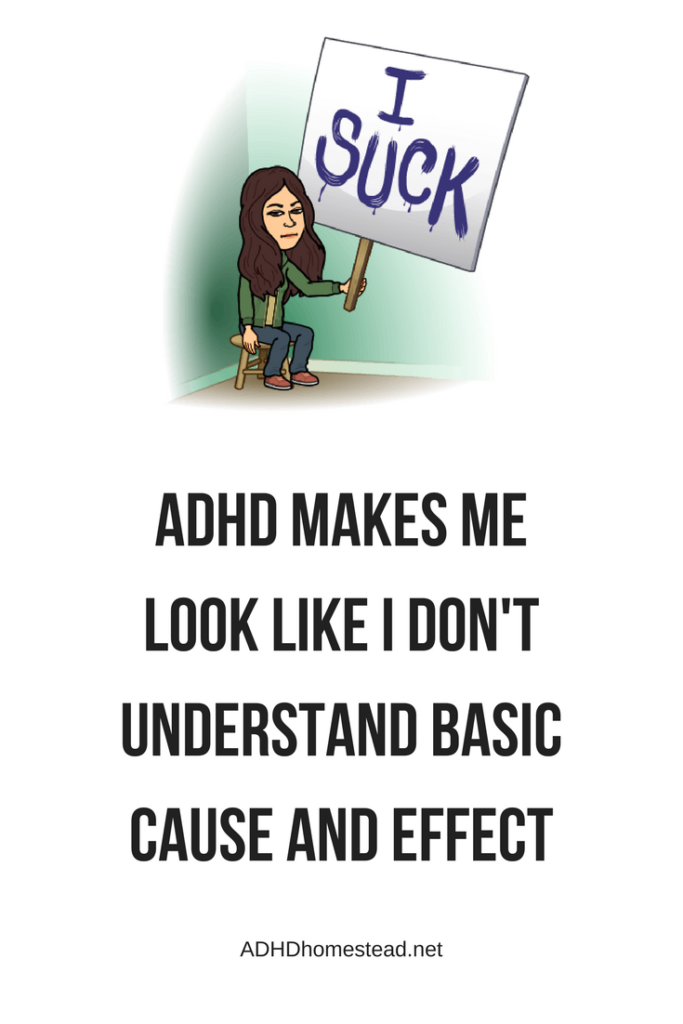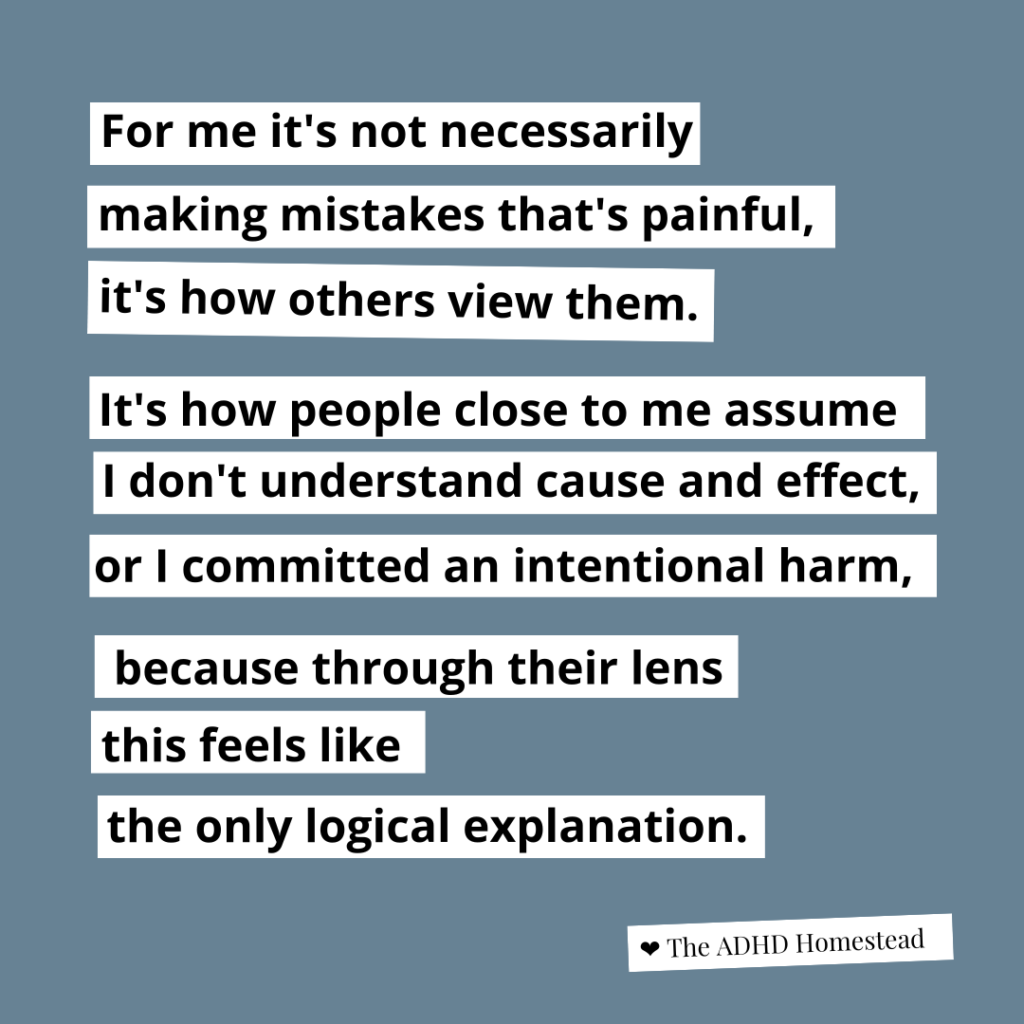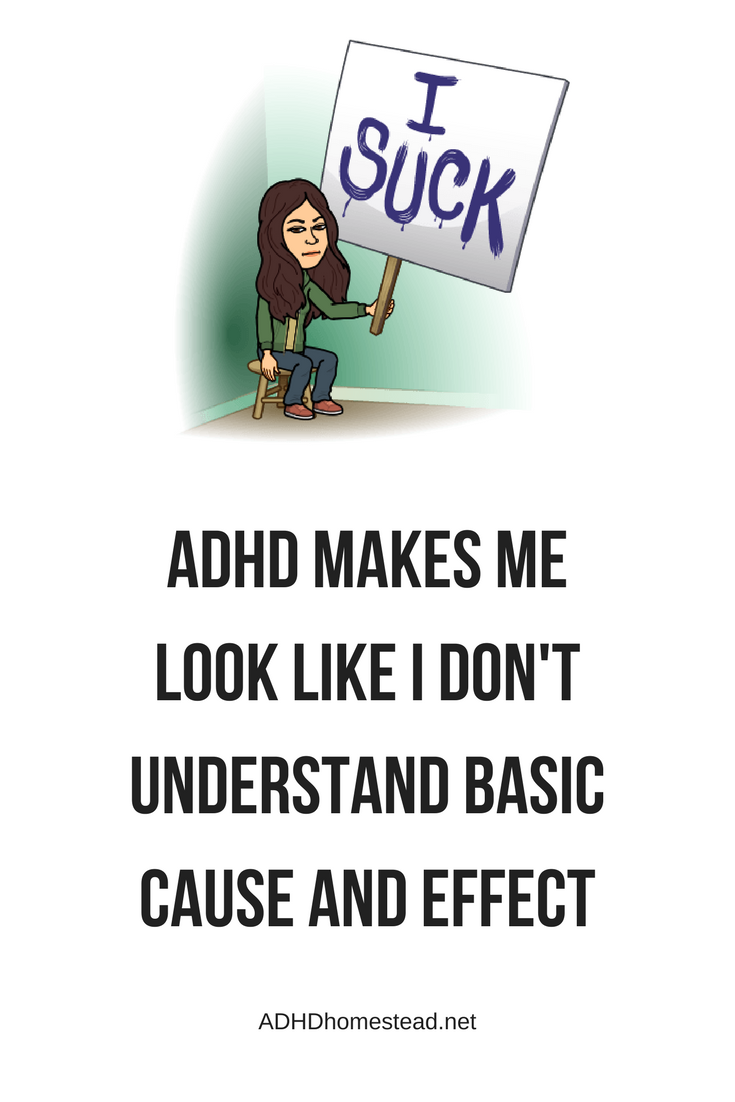Sometimes — maybe more than sometimes — people with ADHD behave in ways that make no sense. Those living close to us wonder, how can we not understand? Spending money now = not having it later. Missing another deadline = getting fired from your job. Forgetting to put gas in the car = car not running. We learn these concepts as babies, when we invert our Cheerios bowl over the floor, or pull the cat’s tail, or cry when left alone in our crib. It’s basic cause and effect.
And yet, here we are, losing another job, paying another late fee, waiting for AAA to rescue us from the side of the road. Maybe you bite your tongue against words like stupid, childish, and irresponsible. You’ve been told they aren’t helpful. We still apply them to ourselves. Our actions make as little sense to us as they do to you.
 The dots don’t always connect
The dots don’t always connect
In case I wasn’t clear: yes, I know my car will eventually run out of gas if I don’t refill the tank. But there’s a difference between possessing logical knowledge and feeling it, deep in your bones.
When I drove a lot, I made stopping for gas part of my regular routine. Now, I drive less. I rarely fill up more than once per month. By the time I need gas, I can’t remember the last time I did it. The action isn’t triggered until the orange light is on solid.
On the highway, when I have less to do, I will look down and remember the gas gauge exists. If it’s getting low, I’ll think, “I should get gas.” By the time I’m sitting at a red light and see a station, I’ve forgotten. “How much are they charging for gas?” I wonder. I note the price and keep driving, never returning to my previous train of thought about needing to purchase that gas for my car.
Even as the needle gets lower and I think about the gas station more often, the time never seems right. The station is on the wrong side of the street. I’m already running late. I’d rather do it tomorrow. And so on, until the orange light dangles the threat of public shame over my head and pushes me to action.
But why?
The culprit behind this — and many other ADHD frustrations — is the neurotransmitter dopamine. Many people refer to it as the chemical of pleasure and reward, but craving and desire hit closer to the mark. Consider this:
When researchers implant rats’ brains with electrodes to stimulate the reward system, the rats stop at nothing to keep the dopamine hits coming. Destroy this part of the brain, and your rat will still experience pleasure from a reward, but he won’t work to get it.
Sound like anyone you know?
With too little dopamine available in our brains, we can appreciate a positive experience, but we don’t crave it properly before we have it. Our logical brain knows we should want it, but the part that drives us to work for it is out to lunch.
ADHD also impairs working memory. The brain’s working memory holds onto information until we can act on it. A “leaky” working memory lets important pieces slip away before they reach long- or short-term storage. We sometimes find it impossible to hold more than one thing in mind at once.
For you nerds out there, working memory is like your computer’s RAM. For the rest of you, a shortage of RAM or working memory can render the whole system borderline unusable. You can’t retrieve or store long-term memories reliably, nor can you make effective decisions on what to do next.
Bad choices
In other words, there’s real neurochemical stuff happening here, folks. Stuff that affects the brain’s ability to function properly.

No one will fault you for wearing a knee brace, or favoring an injured limb. But because the brain controls our thoughts and behavior, we assume everything it does is an accurate reflection of intent. It’s not that simple.
Of course, people with ADHD absolutely do make bad choices. We should take responsibility for those choices. ADHD is not an excuse for irresponsible or inconsiderate behavior, even if it may offer a partial explanation.
What we all need to realize is, dopamine — or the lack thereof — can make a person look like a total jackwagon. We aren’t doing this on purpose. Continuous screw-ups from a person with ADHD probably aren’t indicative of an inborn character flaw. They’re a sign of poorly-managed ADHD.
While poorly-managed ADHD is no picnic, it’s a problem we can solve. And it’s a heck of a lot better than living under a pile of labels like “lazy,” “irresponsible,” “inconsiderate,” and “careless.”
This post was edited to include audio narration and a new graphic on August 31, 2022.
Hey there! Are you enjoying The ADHD Homestead?
Here's the thing: I don't like ads. I don't want to sell your attention to an advertising service run by the world's biggest data mining company. I also value my integrity and my readers' trust above all, which means I accept very few sponsorships/partnerships.
So I'm asking for your support directly. For the cost of one cup of coffee, you can help keep this site unbiased and ad-free.
Below you will find two buttons. The first lets you join our crew of Patreon pals and pledge monthly support for my work. Patrons also have access to my Audioblogs podcast. The second takes you to a simple donation page to pledge one-time or recurring support for The ADHD Homestead, no frills, no strings. Do whichever feels best for you!


 The dots don’t always connect
The dots don’t always connect